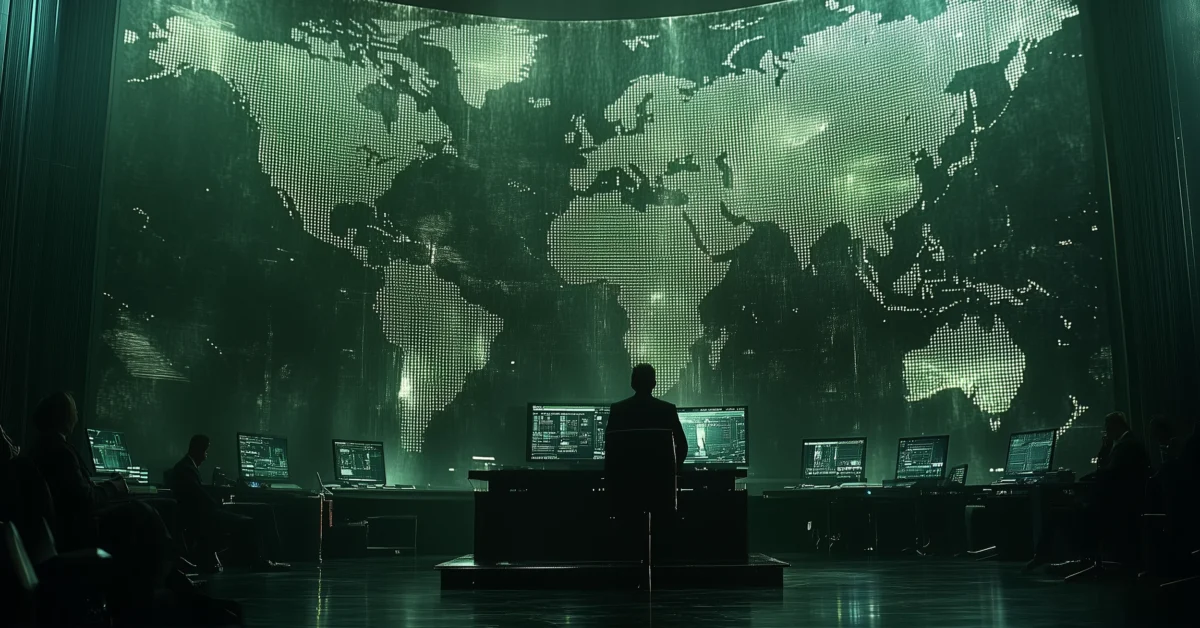
Green Capital Isn’t Clean. It’s Just Rebranded.

AI Won’t Kill Jobs. It’ll Kill Margins.
The AI boom isn’t a land of opportunity — it's a rigged game dominated by entrenched capital and pre-baked distribution channels. Here's why most innovators are already too late.
Introduction
The narrative is simple: AI will democratize everything. Opportunities will rain from the sky. But behind the messianic headlines, the real players have already staked their claims. If you are still pitching your “revolutionary” AI startup, odds are you are just another footnote to someone else’s balance sheet.
The Illusion of Open Opportunity
Every cycle needs a story. In today’s AI boom, the story is one of open fields and infinite upside. Media outlets and venture capitalists fuel this belief, amplifying the idea that the frontier is wide open for anyone with a model and ambition.
History says otherwise. The gold rush towns of the 1800s ended with a few barons and many bankrupt prospectors. The internet boom crowned giants while thousands of startups withered. Crypto promised decentralization; instead, it birthed centralized exchanges and hidden gatekeepers.
The AI market disruption unfolding now follows the same well-worn pattern. Those who think they are early are often already late.
How the Game Was Rigged Before It Began
Long before ChatGPT hit mainstream consciousness, the true infrastructure of AI was being fortified by entrenched players. Cloud providers own the computational pipelines. Social networks dominate distribution channels. Data monopolies safeguard the training fuel.
Strategic acquisitions and “ecosystem investments” are not acts of discovery; they are acts of consolidation. The dominant players buy not just technology, but future competitors. What appears as an open market is, in reality, a walled garden with very few keys.
Meanwhile, capital pools have drifted toward “safe bets.” Institutional money does not chase raw innovation—it backs incumbents who can absorb innovation without risking control. The AI boom isn’t just about who can build. It’s about who already owns the highways of distribution and compliance.
The Hidden Gatekeepers of AI
Data ownership remains the invisible lever. Open-source models might democratize access to some degree, but they cannot overcome the asymmetry of proprietary datasets. The best models still live behind closed corporate doors, trained on oceans of privileged information.
Infrastructure compounds the disadvantage. Access to top-tier compute is neither cheap nor evenly distributed. Startups scraping together GPU clusters are not competing on a level field against companies with bespoke AI supercomputers and preferred access to chip makers.
Regulatory capture seals the moat. As governments awaken to the disruptive potential of AI, the players with the deepest pockets and sharpest lobbyists shape the rules. The stated purpose is safety; the real outcome is insulation.
What This Means for Founders and Investors
The myth of the first-mover advantage is dangerous here. Being first only matters if you can hold the ground you break. In today’s AI landscape, distribution eclipses invention. Without a way to reach users at scale, even the most brilliant model will be commoditized by better-positioned players.
Founders betting purely on technological novelty are sprinting into a furnace. Investors chasing crowded deal flows are financing future write-offs. The real opportunities lie beneath the surface: in the boring infrastructure, the necessary tools, the picks and shovels of this new gold rush.
Strategic Moves
In an AI market disruption environment rigged from the start, alignment—not originality—is leverage. The smartest founders and investors will not try to disrupt distribution; they will quietly align with it.
Invest where scarcity is real: elite talent, exclusive compute access, proprietary ecosystems. These assets are finite, defensible, and strategically invaluable.
Move where noise is lowest and barriers are highest. Strategic patience will matter more than tactical speed. The winners in AI will not be the ones making the loudest promises; they will be the ones building systems that remain durable when the noise fades.
Impact
Still think the field is level? Good luck.


